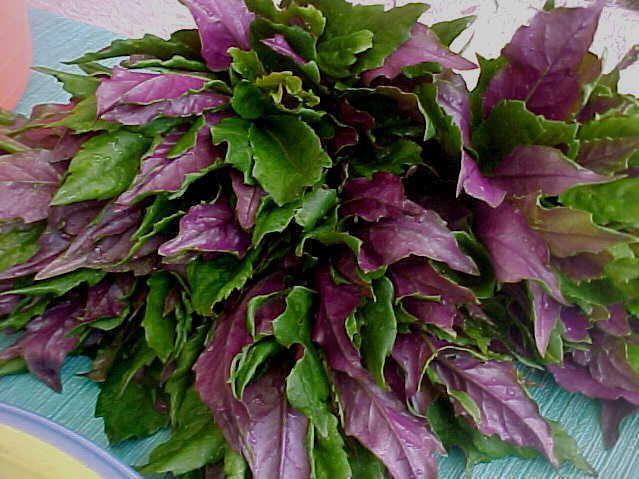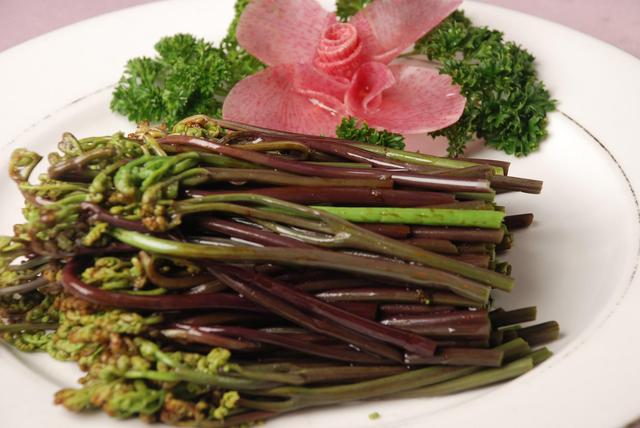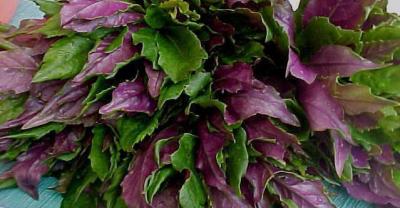Don't eat these two kinds of vegetables indiscriminately. They are life-threatening.
Family conditions are getting better, and many families no longer envy big fish and meat during the Spring Festival, but have a special preference for vegetables. Of course, eating more vegetables is also good for your health. But do not eat these two kinds of vegetables indiscriminately, eating too much will do great harm to the body, and even have the risk of cancer.
Red Phoenix cabbage: the risk of liver injury

Red Phoenix vegetables are the latest popular among the three poisonous vegetables, with the most aliases, such as red back (shellfish), purple back (shellfish), blood (snow) skin vegetables, Guanyin vegetables, red back Panax notoginseng, purple back Panax notoginseng and so on.
Because of its bright red color, some people even call it "blood-tonifying vegetables".
In fact, Brassica chinensis contains pyrrolidine alkaloids (PA for short), which has potential hepatotoxicity and is a very big health hazard.
Like aristolochia lactam, PA is not a substance, but a class of substances, there are many kinds, there are more than 660 known species, some of which have strong hepatotoxicity to humans or carcinogenicity in animal experiments.
In addition, Panax notoginseng (Panax notoginseng), a close relative of the same genus, can cause hepatic veno-occlusive disease, liver fibrosis and, in severe cases, acute liver failure or even death.
Therefore, red Phoenix may also have potential hepatotoxicity and carcinogenicity, and may cooperate with aflatoxin and hepatitis B virus to increase the risk of primary liver cancer.
Eating red Phoenix vegetables may lead to the risk of liver injury.
Bracken: the evidence of carcinogenesis is relatively abundant

Animal experiments have shown that bracken causes cancer.
Epidemiological studies conducted in Japan and South Wales in the United Kingdom also found that eating bracken was significantly related to the occurrence of upper gastrointestinal cancers such as esophageal cancer and gastric cancer.
The carcinogen in bracken has been identified as proferrin, and its carcinogenic mechanism has been discovered-after several steps of metabolism in the human body, it can form an intermediate metabolite, causing damage to DNA molecules and causing cancer.
Human cancer is a complex process affected by many factors. It is not said that eating bracken causes cancer 100%, but judging from the current evidence:
It has been proved by scientific research that bracken contains cancer-related substances including phenyloxalic acid, fern lactam, flavinols, lutein and some substances similar to lutein, which are related to digestive tract cancer.
Of course, bracken will not get cancer immediately after eating once or twice, which is related to the intake of carcinogens, but eating bracken for a long time will be harmful to health.
Often eat bracken, there is a clear risk of cancer, this risk we must understand.
If you are not in the habit of eating these vegetables, you are advised not to eat them.
If there is no special reason, try not to contact, is the best choice.
- Prev

Instructions on the use of pesticides to control common diseases and insect pests in 12 kinds of vegetables
Biological prevention of downy blight diseases (downy mildew, late blight, white rust, Phytophthora root rot, etc.): Pythium olivum / Trichoderma / Bacillus licheniformis / berberine +.
- Next

How to eat vegetables in order to really lose weight?
We all know that vegetables are the first choice for people to lose weight, but many people use vegetables to lose weight but do not achieve the desired results, this is why? Come first.
Related
- Where is it suitable to grow horseradish in China? it is expected to see the middle altitude horseradish in Alishan.
- How to prevent tomato virus disease reasonably? (Control methods included)
- Many people like to plant towel gourd on the balcony. What are the main points of this method and management?
- What crops can chili peppers be mixed with?
- Fertilization techniques and matters needing attention in Tomato
- What are the grafting techniques for peach seedlings in spring?
- Harm and control methods of root swelling disease of Chinese cabbage
- What are the pests of sweet potatoes? How to prevent and cure it?
- Symptoms, causes and Control methods of navel Rot in Tomato
- The cause of "Cucumber rotten bibcock" in Farmers' planting Cucumber and its Control Plan

